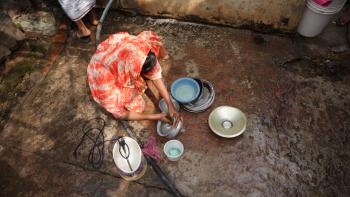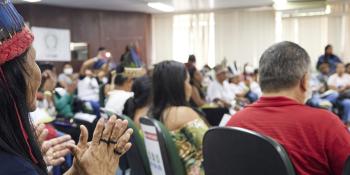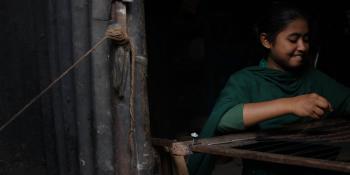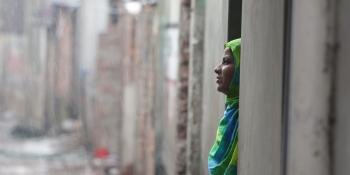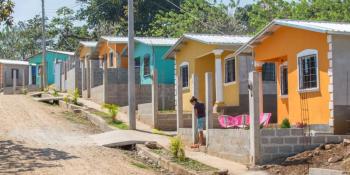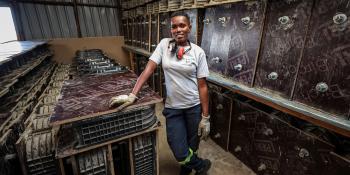Home Equals is committed to advancing policies that increase access to adequate housing for people living in informal settlements. Adequate housing is a powerful catalyst for well-being and informal settlements are brimming with people working together to improve their homes and communities.
Systemic changes, however, require the support of governments and policy makers with the power to remove structural barriers.
To achieve this support, we’re working alongside informal settlement residents, community members and allies, to influence both local and national governments, as well as members of the international community, including leaders of G7 nations, to address barriers to adequate housing through policy change and solutions in four focus areas.
Empowered participation
Create an inclusive stakeholder process that incorporates the priorities, needs, experiences and voices of individuals and their communities.
Read more.
Reliable and sustainable basic services
Expand and improve the provision of basic services like clean drinking water and sanitation facilities.
Read more.
Climate resilience
Reduce vulnerabilities and help people adapt to climate-related hazards and threats.
Read more.
Secure tenure
Prevent eviction, support renters and protect the land and property rights of women, indigenous groups and vulnerable people.
Read more.
With policy solutions in these four areas, people living in informal settlements will be able to:
- improve their housing.
- create inclusive neighborhoods.
- address long-held power dynamics.
- contribute to the security, ecology and sustainability of the broader community.
Communities, cities and countries all benefit from reduced poverty and improvements in health, education and living standards.

Data and evidence:
Home Equals research report
Habitat for Humanity and our research partner, the International Institute for Environment and Development, or IIED, released an in-depth, data-driven report titled Improving Housing in Informal Settlements: Assessing the Impacts in Human Development to help launch our Home Equals campaign. View a summary of the report.
Download the full research report
See how improving informal settlements can increase a country’s economic development, income, health and education outcomes.
Statistical examples from the report include the possibility of increasing GDP and income per capita by as much as 10.5% in some countries, or enrolling as many as 41.6 million additional children in school.
The report reveals that ensuring residents of informal settlements have access to adequate housing isn’t just the right thing to do — it’s the smart thing to do.
Through an extensive literature review and a statistical modeling exercise, the report shows that adequate housing is a powerful catalyst for well-being and sustainability. It impacts a country’s economic development, income, health and education for both residents of informal settlements and the wider society.

A collection of campaigns
Home Equals is not a singular campaign, but rather a collection of campaigns led by Habitat for Humanity entities around the world, in partnership with other stakeholders, to influence policy at local, regional, national and global levels.
The campaign is already active in more than 35 countries, and that number will continue to grow over the campaign’s five years.
The advocacy actions will differ between countries and regions, depending on the specific barriers present in informal settlements.
- In Brazil, we are working with the new administration on housing and urban development programs to ensure residents of informal settlements have access to basic services such as water and sanitation.
- In North Macedonia, we are partnering with Roma communities to ensure they have a voice in municipal and national-level decision-making.
- In Malawi, we are calling for enactment of the Disaster Risk Management Bill to ensure homes are resilient to disasters in the face of climate change.
Participating countries
Achieving global goals
Equitable access to adequate housing is an essential input to achieving the U.N.’s Sustainable Development Goals, or SDGs, by 2030.
Home Equals is aligned with a specific target, SDG 11.1, which calls for access to adequate, safe and affordable housing, including for people living in slums and informal settlements. The campaign also is advancing many other SDGs, such as those focused on water and sanitation, climate action, women’s rights and reducing poverty.
That’s why Habitat for Humanity is calling on G7 member states to recognize housing as a critical lever for international development progress and to commit to addressing housing needs in informal settlements as a way to advance international development priorities.
The campaign will also contribute to other global agreements including the New Urban Agenda, the Paris Climate Agreement and the Sendai Framework for Disaster Risk Reduction.
